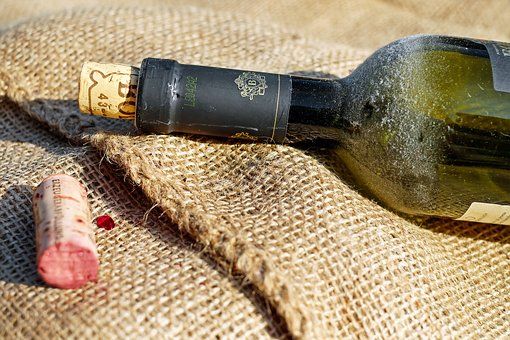The somewhat dissatisfying answer is “It depends." The answer is partially subjective. An opened bottle of wine technically may not be bad (i.e., spoiled), but it may taste “off’ to you. Another piece of information needed to properly answer the question is “How has it been stored since opened?”
How long does wine last?
Factors to consider include:
- Temperature
- Exposure to oxygen
- Exposure to light
- Exposure to odors
- Exposure to vibration
To preserve an opened bottle of wine for as long as possible, you want to minimize exposure of the wine to oxygen and avoid conditions that damage the wine. Damaging conditions include high temperatures, light, odors that can infiltrate the wine and vibration. Note that these conditions are the same ones that should be avoided when cellaring wine (click HERE for more information).
Should I store wine in the fridge?
Wine should be stored inside your refrigerator (assuming strong odors can be avoided) or in a dark cabinet.
If you store a red wine in the refrigerator, remove it several minutes before you plan to consume it to give it time to warm up to proper serving temperature (click HERE for more information).
You should not store wine on top of your refrigerator, where it likely will experience vibration and heat from the refrigerator’s compressor motor, direct sunlight and cooking odors.
Minimize wine's exposure to oxygen
Assuming damaging conditions are avoided, the factor that determines how long your opened bottle of wine will last is exposure to oxygen. Oxygen ages wine.
At a minimum, you should re-cork the wine for storage. Ideally, you should use a wine preservation system.
Should I purchase a wine preserver?
Ultimately, you must determine what works for you. A good approach is to re-cork an opened wine, store it away from heat, light, odors and vibration and see how much time passes before you find the wine unpalatable. Irrespective of the taste, you should not let more than a few days pass before drinking the wine, as bacteria will grow in an opened wine (as is the eventual case with all air exposed food and drink).
If the timeframe for when the wine starts to taste “off” to you is not sufficient for how often you drink wine, consider a wine preservation system. Your budget for such a system and the average price you pay for wine are factors to consider. You may opt for an inexpensive air extraction pumping system or a specialty gas preservation system. Or you may decide to purchase both, using the less expensive system for inexpensive wine and the specialty system for special bottles of wine.
What is the best wine preserver system?
The "best" wine preserver system is a matter of personal preference in consideration of...
- Whether you typically plan ahead of time to consume only a portion of a bottle of wine
- How long you wish to keep a bottle of opened wine before consuming
- How much you are willing to spend on a wine preservation system
Available wine preservation systems range from simple hand pumping mechanisms that remove air from the wine bottle to specialty nitrogen and argon gas preservation systems.
The simple hand pumping mechanisms are used after you have taken whatever wine you want from the bottle and are ready to store the wine. As it is nearly impossible to remove all oxygen from the wine bottle using one of these pumping mechanisms, the wine will oxidize/age rather quickly. Depending on how much oxygen you remove, the taste of the wine may change in as little as a day or two.
The specialty gas wine preservation systems must be affixed to the wine bottle before you take any wine from the bottle. These systems pump either nitrogen or argon gas (inert gases that will not age the wine) into the wine bottle as wine is taken out of the bottle. The inert gases take up the space in the wine bottle that otherwise would be claimed by oxygen when you take wine from the bottle. Without exposure to oxygen, the wine will remain tasty for several weeks. However, because some oxygen still will come into contact with the wine, the wine will not keep indefinitely.
So, why wouldn’t you simply go with a specialty gas wine preservation system? You would if cost were not a consideration. Unfortunately, the systems currently on the market are pricy. Either you need to spend a lot upfront for an industrial type system that has reasonably priced options for gas refills or you can buy a consumer system at a much lower upfront cost that only offers expensive gas refill options. This consumer system unfortunately is not economically attractive for preserving inexpensive bottles of wine.
Get Personalized Wine Recommendations
Click here to learn more about Calldera taste based wine recommendations



